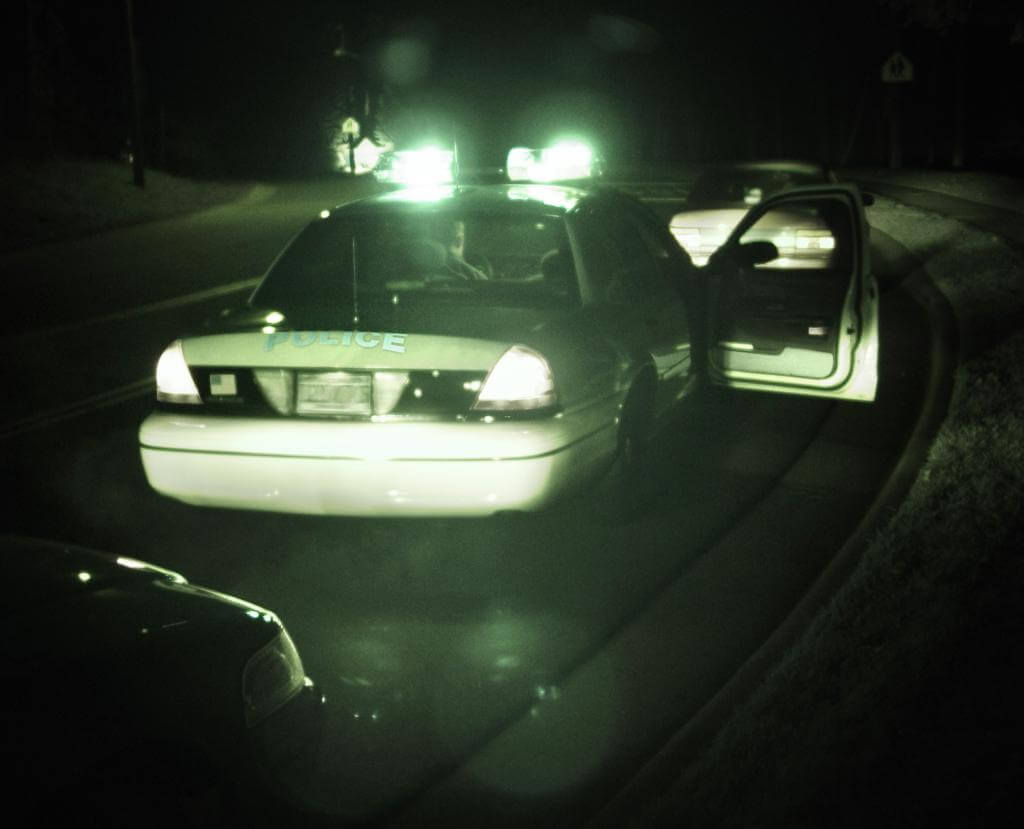
 The Fifth Circuit Court of Appeals (Federal) issued an opinion on September 27, 2011 in United States v. Macias, addressing an unconstitutional search and seizure by a Trooper in Pecos County, Texas. On November 22, 2009, Trooper Juan Barragan stopped Robert Macias, Jr. for failure to wear his seatbelt. Upon stopping the defendant, Trooper Barragan started asking him questions. His initial questions dealt with common issues such as the defendant’s purpose for traveling and the defendant’s lack of insurance. As time went on Trooper Barragan began asking more and more questions unrelated to the reasons he stopped the defendant in the first place. After his initial questions, the trooper asked the defendant about his employment and the specific reason he was traveling to see a doctor. The trooper also repeated questions that the defendant had already been asked and had answered. The initial exchange between the two took approximately two minutes.
The Fifth Circuit Court of Appeals (Federal) issued an opinion on September 27, 2011 in United States v. Macias, addressing an unconstitutional search and seizure by a Trooper in Pecos County, Texas. On November 22, 2009, Trooper Juan Barragan stopped Robert Macias, Jr. for failure to wear his seatbelt. Upon stopping the defendant, Trooper Barragan started asking him questions. His initial questions dealt with common issues such as the defendant’s purpose for traveling and the defendant’s lack of insurance. As time went on Trooper Barragan began asking more and more questions unrelated to the reasons he stopped the defendant in the first place. After his initial questions, the trooper asked the defendant about his employment and the specific reason he was traveling to see a doctor. The trooper also repeated questions that the defendant had already been asked and had answered. The initial exchange between the two took approximately two minutes.
After the initial exchange, the trooper asked the defendant to come back to his patrol car with him. The trooper then began to ask the defendant another series of questions. Trooper Barragan asked if the defendant had his “own little company” and if he had ever “been in trouble before.” This second series of questions lasted approximately one minute. The trooper then went back to the defendant’s vehicle (it was actually he defendant’s sister’s vehicle) and asked the defendant’s passenger a series of questions regarding her relationship with the defendant and the purpose of their trip. Two more minutes elapsed during this series of questions. The trooper then went back to the defendant and asked him more questions at which point he elicited from the defendant that he had been previously imprisoned for an attempted murder conviction. The trooper then told the defendant that he was going to go back to his patrol vehicle and write him a citation for failure to wear his seatbelt. Eleven minutes elapsed from the time that the defendant had been pulled over to the time that he received the citation.
Ten minutes after returning to his patrol car, the trooper returned to the defendant and gave him the citation. The defendant signed the citations. Then, just as the trooper was about to leave, he asked the defendant for consent to search his vehicle. The defendant protested that there was nothing in the vehicle, but he ultimately gave consent to search the truck after his protestations were met by the trooper noting that the defendant has a “shady” background. Seventeen minutes after he began the search of the truck, and forty-seven minutes after initiating the stop, Trooper Barragan found an unloaded firearm and ammunition in a closed bag belonging to the defendant.
A grand jury indicted Macias for being a felon in possession of a firearm. Macias moved to suppress the firearm as fruits of an unconstitutional detention. The district court denied Macias’s motion to suppress and Macias entered a conditional plea of guilty with the option to appeal the district court’s denial.
The Fifth Circuit analyzed the legality of the stop based on the traditional Terry v. Ohio analysis. 392 U.S. 1 (1968). The Court first looked to whether the Terry stop of the vehicle was justified at its inception and then whether the officer’s subsequent actions were reasonably related in scope to the circumstances that justified the stop of the vehicle in the first place. Macias conceded that the stop was valid, but that the Trooper exceeded the scope of the stop when he asked questions unrelated to the purpose and itinerary of the trip. Macias argued that these questions impermissibly extended the duration of the stop without developing reasonable suspicion of additional criminal activity.
The Court cited various cases including United States v. Pack, 612 F.3d 341 (5th Cir.), which held that an officer may ask questions on subjects unrelated to the circumstances that caused the stop, so long as these unrelated questions do not extend the duration of the stop. Macias’s argument was that the Trooper’s actions after the stop unconstitutionally extended the duration of that stop. Macias specifically noted that the trooper ran computer checks, engaged in detailed questioning about matters unrelated to Macias’s driver’s license, his proof of insurance, the vehicle registration, or the purpose of the itinerary of his trip that unreasonably prolonged the detention without developing reasonable suspicion of additional criminal activity. The Fifth Circuit agreed.
The Fifth Circuit noted that the only evidence that the trooper could point to that might lead to reasonable suspicion of additional criminal activity was Macias’s extreme nervousness. It held that extreme nervousness in and of itself was not sufficient to support the extended detention.
The Fifth Circuit ultimately concluded that the search of the truck violated the Fourth Amendment (Terry Stop prohibitions) and that all evidence resulting from that search should have been suppressed. Macias’s judgment of conviction was reversed and vacated and the case was remanded for entry of judgment of acquittal.
The case contains a lot of applicable case law (a horn book in itself) for attorney’s practicing in the Fifth Circuit in regards to Fourth Amendment searches and seizures.


 I love technology – from tablet computers to smartphones to flat-screen televisions. If it’s shiny and new and guaranteed to make me the envy of my friends and family, I’ll buy it (to the dismay of my wife). One of the recent (in the last 5 years) technological advancements that has made its way into just about every home in America is GPS. Whether it be a Garmin running watch, a TomTom navigational device, or a GPS location broadcaster on your cell phone, most people use some sort of GPS device every day. Aside from the fact that we’ve lost the capability to drive somewhere without turn-by-turn directions, GPS is great.
I love technology – from tablet computers to smartphones to flat-screen televisions. If it’s shiny and new and guaranteed to make me the envy of my friends and family, I’ll buy it (to the dismay of my wife). One of the recent (in the last 5 years) technological advancements that has made its way into just about every home in America is GPS. Whether it be a Garmin running watch, a TomTom navigational device, or a GPS location broadcaster on your cell phone, most people use some sort of GPS device every day. Aside from the fact that we’ve lost the capability to drive somewhere without turn-by-turn directions, GPS is great. Investigating a reported shooting, the police knock on the door to a home that is answered by an adolescent (a minor). Can the minor give the police permission to enter the home? Must the police ask whether the minor lives in the home? Should the police ask to speak to an adult? These issues were considered by the Texas Court of Criminal Appeals in
Investigating a reported shooting, the police knock on the door to a home that is answered by an adolescent (a minor). Can the minor give the police permission to enter the home? Must the police ask whether the minor lives in the home? Should the police ask to speak to an adult? These issues were considered by the Texas Court of Criminal Appeals in 
 Supreme Court Case Review –
Supreme Court Case Review – 
 United States v. Cantu
United States v. Cantu
 In a case released yesterday from the Texas Court of Criminal Appeals (
In a case released yesterday from the Texas Court of Criminal Appeals (
 After being convicted of aiding and abetting mail fraud and aggravated identity theft, Lonnie Oliver Jr., challenged his convictions on appeal, arguing that federal agents conducted an illegal search of the contents of a cardboard box that his girlfriend provided to them and that his statements to police officers were involuntary.
After being convicted of aiding and abetting mail fraud and aggravated identity theft, Lonnie Oliver Jr., challenged his convictions on appeal, arguing that federal agents conducted an illegal search of the contents of a cardboard box that his girlfriend provided to them and that his statements to police officers were involuntary.





